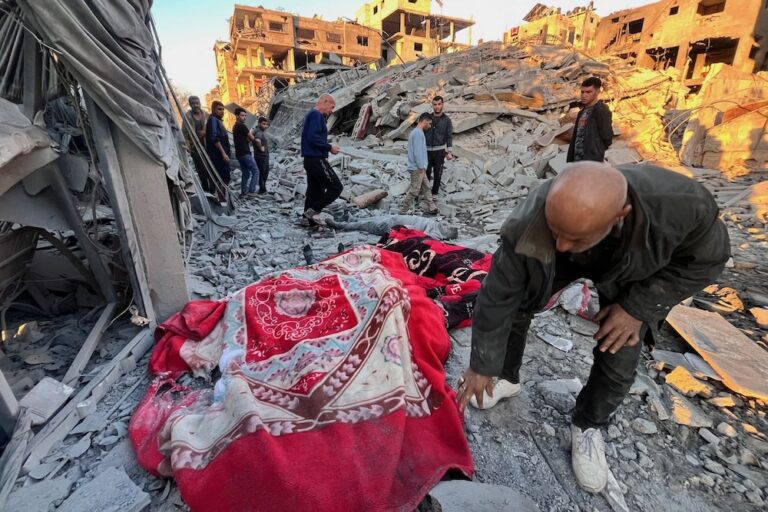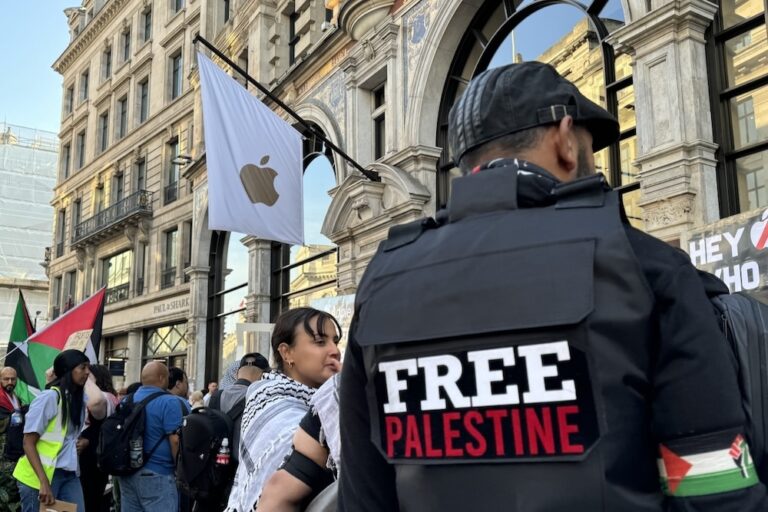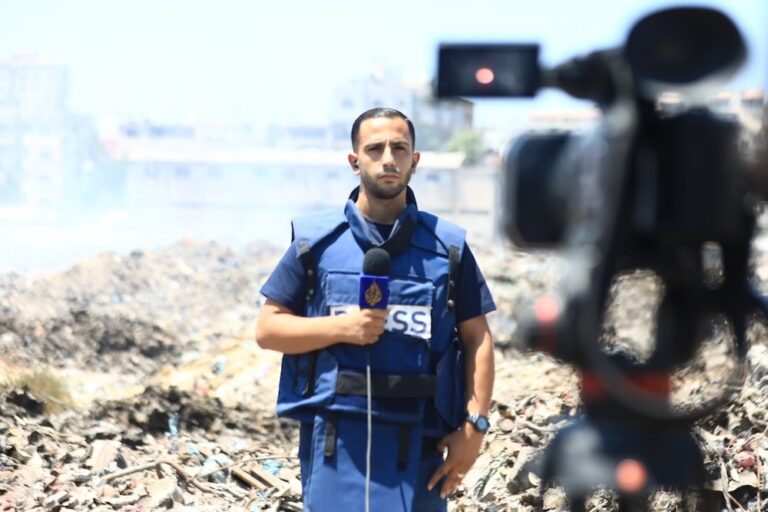(RSF/IFEX) – Reporters Without Borders condemns the Israeli army’s actions in firing on a Palestinian cameraman employed by the Hamas-owned satellite TV station Al-Aqsa as he was covering an Israeli incursion into the central part of the Gaza Strip on 5 July 2007. The cameraman was seriously injured and had to have both legs amputated. […]
(RSF/IFEX) – Reporters Without Borders condemns the Israeli army’s actions in firing on a Palestinian cameraman employed by the Hamas-owned satellite TV station Al-Aqsa as he was covering an Israeli incursion into the central part of the Gaza Strip on 5 July 2007. The cameraman was seriously injured and had to have both legs amputated.
“This attack tragically illustrates the dangers to which Palestinian journalists are exposed,” the press freedom organisation said. “The Israeli army’s repeated attacks on media and journalists during military operations are unacceptable and constitute violations of international humanitarian law. A thorough investigation must be quickly carried out to establish why soldiers fired on this journalist after he had been injured and knocked to the ground by the blast of a grenade.”
An Israeli military source told Agence France-Presse that Al-Aqsa cameramen “could not be regarded as journalists as they are part of Hamas’ armed wing and their films are used for propaganda purposes or instruction.”
During an interview with Reporters Without Borders representatives in December 2006, Israeli deputy defence minister Efraim Sneh advocated attacking the new Hamas TV station’s premises “if hostilities resumed and if the Islamic party announced the resumption of its terrorist activities.” He added that, “media belonging to terrorist organisations cannot enjoy the same rights as other media since they glorify violence.”
In the view of Reporters Without Borders, Hamas’ activities cannot be used as an excuse or justification for attack an Al-Aqsa TV employee. “Firstly, journalists enjoy the same status as civilians and are therefore protected as such under international humanitarian law,” the organisation said. “Secondly, Protocol Additional 1 to the Geneva Conventions states that radio and TV installations may only be regarded as legitimate targets if they are used for military purposes and directly contribute to the war effort.”
Imad Ghanem, 23, was covering a 5 July Israeli military incursion to the east of the Al-Barij refugee camp in the centre of the Gaza Strip. Although he was not wearing anything that identified him as a member of the press, he was carrying a TV camera and he was with a large number of fellow journalists.
Wounded by the blast of a rocket fired from a helicopter, Ghanem was lying on the ground when Israeli troops fired at him. Footage filmed by his colleagues shows him being hit in the legs by two shots fired in quick succession. He was taken to Deir-al-Balah where both of his legs were amputated. He was then transferred to Al-Shifa hospital where his condition was reported to be stable.
Reporters Without Borders has registered at least nine cases of journalists being wounded by Israeli military fire since the start of the year. For the most part, they were injured by shrapnel from stun or tear grenades or by rubber bullets.
An Israel Defence Forces spokesperson told Reporters Without Borders: “Israel views freedom of speech as a fundamental principal to democratic society and makes every effort to prevent the harm of journalists. IDF forces were operating in the region as part of the struggle against the terrorist activity in the Gaza Strip including Qassam rocket launchings and the attempted abduction of soldiers into Gaza, as occurred on June 9th, 2007. However, as witnessed in that same event, terror operatives often disguise themselves utilizing equipment (a jeep branded with the label “press”) to manipulate their true identity which is of a threatening nature. This illustrates the challenges the IDF faces while being aware of the presence of journalists in the zone of battle. The footage published in the different media outlets indicates that in the incident in question the so-called journalist did not carry any identifying ‘press’ sign and operated among the gunmen. Moreover, the footage does not clearly identify the source of fire.”


